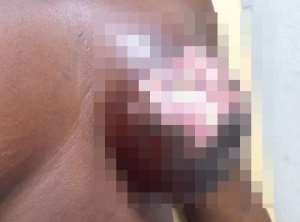
Dr Rohit Kumar C, Consultant, Surgical Oncology, Manipal Hospitals, Bangalore, India, says career women have 70% risk of developing breast cancer than housewives and less busy women in the informal sector.
This is due to the excessive physical and emotional stress they are exposed to at home and work.
He said emotional stress raised stress hormones that lowered immune function, altered the metabolism of hormones and environmental toxins, stimulated cancer stem cell activity, and suppressed their immune system.
It also stimulates angiogenesis, the development of a tumor's blood supply, inactivates tumor suppressor genes, damages DNA and hinders repair.
Dr Rohit said stress also stimulated growth factors that promoted tumor cell growth, increased risk of genetic mutations, altered the genes that controlled the stress response, and resulted in a reduction in natural killer cells.
Dr Rohit explained the effects of stress among women via a virtual workshop organised by the Manipal Hospitals for women in Ghana, and Africa at large as part of its efforts to promote healthcare among women during the 2022 Mothers' Day celebration.
In an interaction with women over what stressed them up, he said they mentioned work, relations and family, body issues, mental issues and trauma, financial issues, caretaking roles, and bereavements.
Dr Rohit said research had placed women over 30 years at high risks of developing breast cancer, 40 to 44 years at average risk, 45 to 54 also at average risk and over 55, average risk.
He said a study had also shown that one in eight women would have breast cancer and more than 250,000 women were diagnosed of breast cancer each year in the U.S.
Women could detect the status of their breasts through self-examination, examination by physicians, and mammography (the only modality shown to decrease mortality), he said.
The Consultant directed young ladies to practice self-examination two or three days after every menstrual period and elderly women, once and same date every month.
“The three middle fingers are held together, with the metacarpal-phalangeal joint slightly flexed. Pads of the fingers are the examination surface. Each area is palpated by making small circles using three different pressures – light, medium and deep.
“Stand before mirror, test when in shower or lie down facing the roofing and look and feel for your breast,” he said.
Dr. Rohit stated that abnormal breast changes could be lump in the breast, nipple discharge or tenderness, changes in breast size or shape, and changes in skin of the breast.
He called on all women, especially the minority who are having some signs of the disease, to have a risk assessment by age 30 to ensure that they were not in a higher risk category.
For those at 40 years and above, he said annual mammography screening was very key as it ensured the greatest breast cancer mortality reduction and better surgical options as well as effective chemotherapy.
“Mammograms are still the best screening tool for breast cancer and early detection means more treatment options and better outcomes.
“Please bear in mind that clinical trials have shown a 30 to 40 per cent reduction in breast cancer deaths among women who have had annual screening mammograms between ages 40 and 49,” he said.
Dr Rohit cautioned women and the public to limit consumption of red and processed meat, sugar sweetened drinks, alcohol consumption and avoid using supplements for cancer prevention.
They are to eat diets rich in whole grains, vegetables, fruits, and beans, reduce stress and engage in bodily exercises.
GNA




 We’ll protect state wealth from opaque deals – Prof Jane Naana
We’ll protect state wealth from opaque deals – Prof Jane Naana
 Mauritania president says running for second term in June polls
Mauritania president says running for second term in June polls
 I won't ever say I was a mere driver’s mate' — Prof. Opoku-Agyemang
I won't ever say I was a mere driver’s mate' — Prof. Opoku-Agyemang
 2024 polls: 'EC struggling to defend credibility'— Prof. Opoku-Agyemang
2024 polls: 'EC struggling to defend credibility'— Prof. Opoku-Agyemang
 Akufo-Addo gov't's 'greed, unbridled arrogance, unrestrained impunity, sheer dis...
Akufo-Addo gov't's 'greed, unbridled arrogance, unrestrained impunity, sheer dis...
 Election 2024: Ghana needs an urgent reset, a leadership that is inspiring – Ma...
Election 2024: Ghana needs an urgent reset, a leadership that is inspiring – Ma...
 Partner NDC to rollout a future of limitless prospects – Prof Jane Naana Opoku-A...
Partner NDC to rollout a future of limitless prospects – Prof Jane Naana Opoku-A...
 NPP will remain in gov’t till Jesus comes — Diana Asamoah
NPP will remain in gov’t till Jesus comes — Diana Asamoah
 Sunyani Technical University demands apology from former SRC president over sex-...
Sunyani Technical University demands apology from former SRC president over sex-...
 'Dumsor' was resolved by Mahama but ‘incompetent' Akufo-Addo has destroyed the g...
'Dumsor' was resolved by Mahama but ‘incompetent' Akufo-Addo has destroyed the g...
